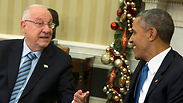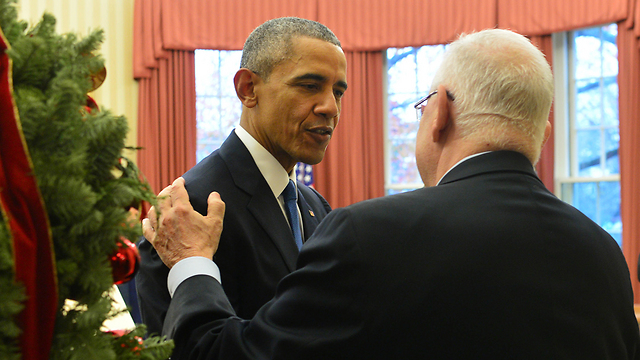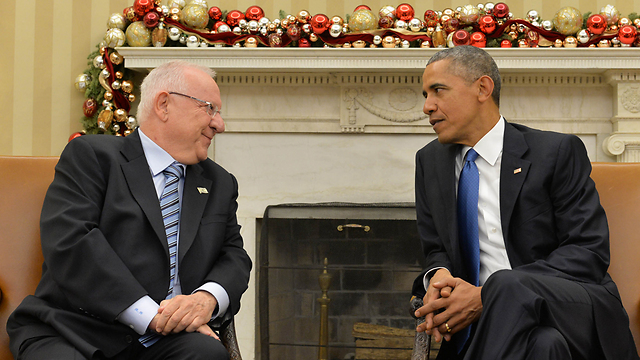
Obama to Rivlin: Peace seems distant, but we need to try
Smiling and relaxed, the Israeli and American presidents met in the White House on Wednesday. Obama told Rivlin that the US was committed to the issue of Israel's security, and condemns the violence and incitement.
Obama condemned the incitement and the violence that is enveloping Israel during the current wave of terrorism. He expressed his hope for the renewal of a dialogue between Israelis and Palestinians that would lead to peace, even though he admitted the idea seems distant right now.
Rivlin thanked Obama for his support of Israel during his seven years in the White House, and said that Israel does not have as close a friend as the United States. He added that Israel is not at war with Islam.
The two Presidents spoke to the press shortly before an official ceremony where they would light candles on the Hanukkah menorah in the White House.
The White House attempted to invite Rivlin over last winter, when he was visiting the United Nations – after it was revealed that Prime Minister Netanyahu was about to visit Congress without consulting the White House – but Rivlin refused, citing a busy schedule.
Prior to his visit, Rivlin published an article in the Washington Post under the headline, "What Israel should do to lay the groundwork for peace." In it, the President wrote that present security concerns were being neglected during discussions of the future, and that Israel has failed in protecting the security of East Jerusalem's Jewish residents – and the welfare of its Arab residents.

Rivlin said in the article that there isn't a practical solution to the Israeli-Palestinian conflict right now, and that there doesn't seem to be a diplomatic process in the near future. "Israel must take steps to improve the situation independent of the geopolitical territorial debate — steps that every sensible person understands serve simultaneously Israel’s moral and practical interests," he wrote.
Rivlin does not have plans to meet with recently-released American-Israeli spy Jonathan Pollard. He appears to have no intention of bringing up the issue of Pollard's harsh parole terms, which include his not being allowed to move to Israel for at least five years, during his talks with Obama.












